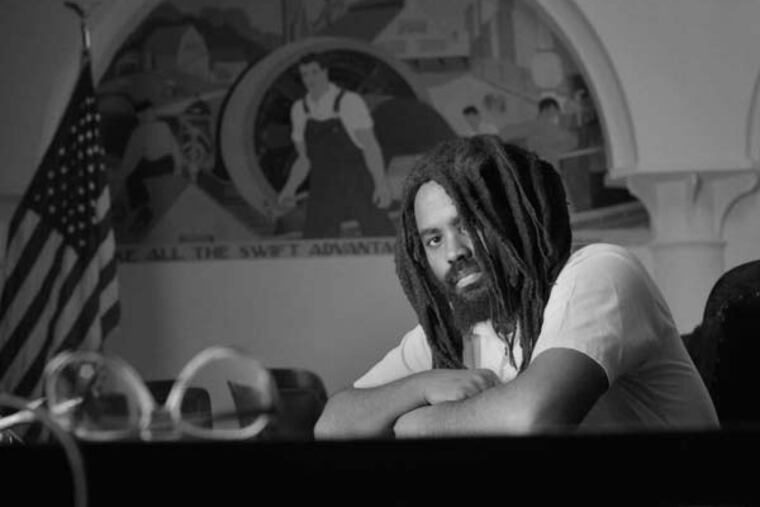Abu-Jamal portrayed as intellectual and victim
More a deification than a documentary, Long Distance Revolutionary: A Journey with Mumia Abu-Jamal presents its subject - sentenced to death for the shooting of Philadelphia Police Officer Daniel Faulkner in 1981 - as a firebrand intellectual, a political

More a deification than a documentary, Long Distance Revolutionary: A Journey with Mumia Abu-Jamal presents its subject - sentenced to death for the shooting of Philadelphia Police Officer Daniel Faulkner in 1981 - as a firebrand intellectual, a political prisoner, a man of eloquence and insight. (The U.S. Court of Appeals for the Third Circuit vacated his death sentence in 2011, and it was converted to life without parole.) Abu-Jamal, through the books he has written from jail, interviews he's given, and classes he's taught (by speakerphone), has become a symbol of martyrdom and defiance around the world.
In France, as Long Distance Revolutionary reports, there is a city with a street named after him - and a postage stamp with Abu-Jamal's photograph, a dreadlock dangling over one eye. That's just another reason Geno's Steaks owner Joey Vento, interviewed for the film, changed his menu offering from french fries to freedom fries. (Vento died last year.)
Other detractors are obligatorily spliced into the doc, including Philadelphia Daily News columnist Stu Bykofsky, who coined the term "Mumidiots" to describe the legion of celebrities who have lionized Abu-Jamal and lobbied for his freedom.
Director Stephen Vittoria lines up a roster of writers and educators, actors and activists, to sing Abu-Jamal's praise. And praise they do. Alice Walker, Cornel West, Angela Davis, Ruby Dee, and Giancarlo Esposito herald Abu-Jamal's views on race and class oppression, on a United States founded by slave owners, a Constitution built on contradiction and conflict.
And though Vittoria offers lots of context - about the Black Panthers (Abu-Jamal was a member), MOVE (Abu-Jamal, a Philadelphia radio reporter, covered the group and its combative history with police and city officials), George Wallace, and Frank Rizzo - the events of Dec. 9, 1981, are barely examined.
Shots ring out on the movie's sound track, newspaper headlines are scanned, and then it's back to Abu-Jamal (in archival video footage, and in an actor's reenactments) writing and talking about "mass incarceration," about Nat Turner and Frederick Douglass, from his tiny cell.
The long, messy legal battle since Abu-Jamal's arrest, trial, and conviction is not what Long Distance Revolutionary is about.